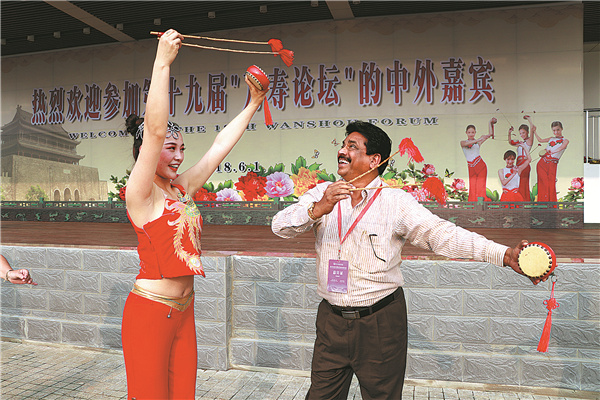

In recent years, supported by the local government, Yang's troupe often travel to villages to perform.
"More local villagers have been joining in with the shows, they will come forward without any invitation, for example, to show off their dancing or skills with a musical instrument," she says.
"Viewers can feel that they are really happy and that they want to express their love of cultural activities," says Yang.
Historical events
For the performance, Tashi Phuntsok, a Tibetan singer sang a song called Manifesto of Poverty Alleviation.
"How is a day in poverty? Proud father could not stand upright. How is the memory of poverty? Diligent mother's brows are always knitted," he sang.
Xiaogang villagers remember how it feels to be mired in poverty.
The night of Nov 24, 1978, forever changed Xiaogang. A bold decision made by Yan and his fellow villagers utterly altered the development path of the Chinese countryside.
Eighteen of the villagers secretly signed an agreement to subdivide their common farmland into family plots in the hope of increasing crop yields.
Starting in spring 1979, the 18 farmers began cultivating their own land, subdivided by drawing straws, with great enthusiasm, though still in secrecy.
When the harvest came, the households had reaped five times more crops than the previous year, and the secret was discovered by local authorities.